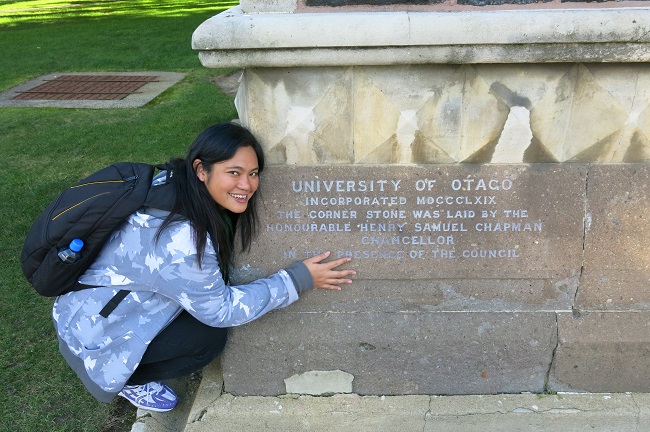 Dina Prasetyo is working on her doctorate in Tourism.
Dina Prasetyo is working on her doctorate in Tourism.
While working in her home city, Jakarta, Indonesia, Dina began casting around for a follow-up to her Bandung Institute of Technology Master of Science in Development Studies specialising in tourism consultancy.
Dina recalls, “The University of Otago Tourism PhD programme was one of the first that came up in my Google search. So I looked it up and found a couple of lecturers whose expertise matched my research topic.
“I intend identifying best-practice approaches for integrating indigenous knowledge and practices into a sustainable marine ecotourism development, with a case study on scuba diving tourism in Misool, Raja Ampat Regency, West Papua Province, Indonesia.
Whereas when I was on public boats, I saw people who didn't seem to care about the environment and just threw their rubbish out to the ocean.
“During my own scuba diving trips all over Indonesia, I often met and talked with the local communities. I was intrigued by their knowledge, gained from their parents and grandparents, about the importance of protecting their marine environment. Whereas when I was on public boats, I saw people who didn't seem to care about the environment and just threw their rubbish out to the ocean.”
Marine biodiversity attracting new diving tourism industry
Raja Ampat's waters have the highest marine biodiversity on earth and a fledging scuba diving industry predicted to develop rapidly over the coming years, making it an excellent location for Dina's field work.
Dina says her PhD supervisors, Dr Anna Thompson (nee Carr) and Dr Sebastian Filep, and the Department of Tourism have been highly supportive academically and offered personal support when needed, as well as providing all she needs to study and work.
Dunedin's compact nature and the ambience of its Victorian style buildings are real highlights for Dina, too.
“Unlike other universities in New Zealand, Otago gets to have a snowy day once or twice a year. I made my first ever snowman in Dunedin last year!”